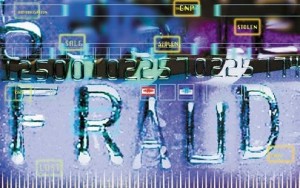“Safe is not a privilege. It is a right. Safe never sleeps.”
This is the message that McAfee delivers on their home page. They claim to provide comprehensive anti-theft protection. So what is theft? What kind of price do we expect and are asked to endure in order to get “protection”? Let’s look at the details which we at CompuClever experienced first-hand.

McAfee
- Prior to Sept. 17 2012: We were contacted by McAfee Web Security team about renewing our web security monitoring service for the next two years. We had been using this service for the past four years, but given there are comparable services with better pricing plans, we decided not to renew. The expired American Express credit card information was stored on our McAfee account. The card expired in May 2012 and we decided to not update the card record, thinking that no one could do anything using a credit card with invalid expire date.
- Oct. 22, 2012: We discovered a transaction of $3,910.44 was charged by McAfee on Sept. 17th 2012, for a two-year web security monitoring service that we didn’t want to renew. No bill, invoice, or notification of any sort was sent by McAfee.


